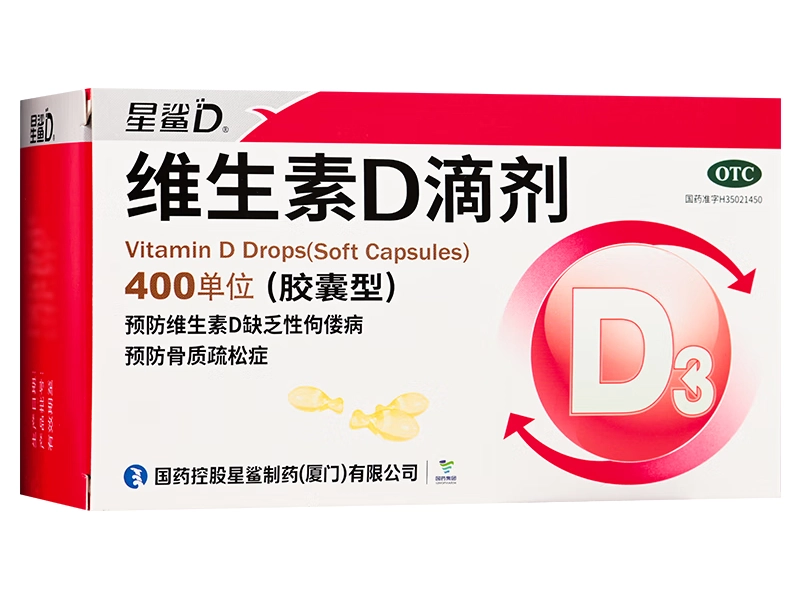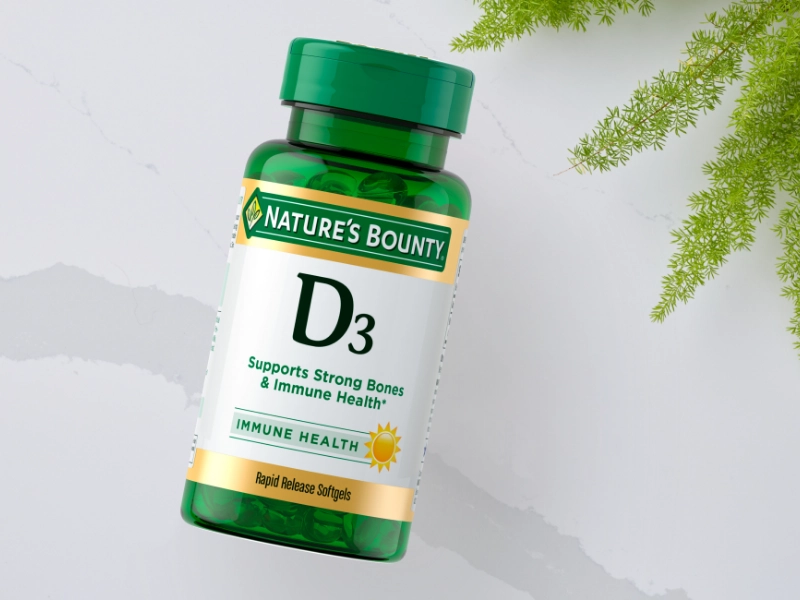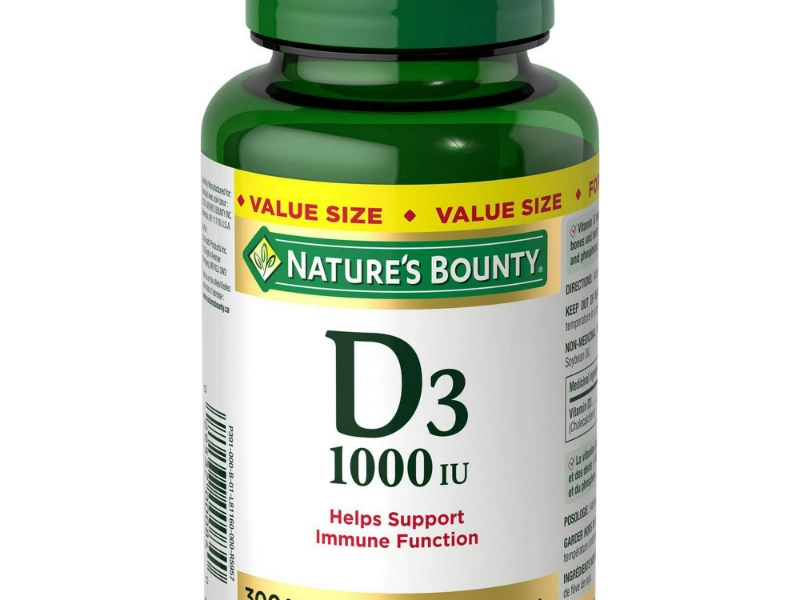Vitamin D and Breast Health: Supporting Women's Wellness
Particularly for women, vitamin D is a vital mineral with functions in many spheres of life. Its relevance goes beyond bone health since new studies show possible advantages for general wellbeing and breast health. Examining how this essential vitamin improves women's well-being and provides ideas on how to keep appropriate levels, this article explores the relationship between vitamin D and breast health.
Recognising Vitamin D and Its Sources

Vitamin D's Relationship to Breast Health
 Studies on the link between vitamin D and breast health have turned more and more towards Studies point to appropriate vitamin D levels possibly acting as a preventive measure against breast cancer. Thought to influence cell development and differentiation, vitamin D may help stop the unchecked cell multiplication connected with cancer.
Furthermore seen in breast tissue are vitamin D receptors, suggesting that this vitamin can directly affect breast condition. Though more research is required to prove a clear correlation, several studies have suggested that women with higher levels of vitamin D had a reduced risk of breast cancer. Still, women can proactively maintain ideal vitamin D levels to support their general wellness and breast health.
Studies on the link between vitamin D and breast health have turned more and more towards Studies point to appropriate vitamin D levels possibly acting as a preventive measure against breast cancer. Thought to influence cell development and differentiation, vitamin D may help stop the unchecked cell multiplication connected with cancer.
Furthermore seen in breast tissue are vitamin D receptors, suggesting that this vitamin can directly affect breast condition. Though more research is required to prove a clear correlation, several studies have suggested that women with higher levels of vitamin D had a reduced risk of breast cancer. Still, women can proactively maintain ideal vitamin D levels to support their general wellness and breast health.
Vitamin D and hormonal balance
 Women's health depends on hormonal balance, which is mostly related with vitamin D. Essential for reproductive health, hormones including oestrogen and progesterone are produced in balance in part by this vitamin. Different health problems including menstruation abnormalities, mood swings, and higher risk of some diseases might result from imbalances in these hormones.
Furthermore, vitamin D could help reduce symptoms related to hormonal changes, such those menopause brings. Certain studies indicate that enough vitamin D can help menopausal symptoms—including mood swings and hot flashes—to be less severe. Supporting hormonal balance helps vitamin D boost general well-being and can improve quality of life for women at different phases of life.
Women's health depends on hormonal balance, which is mostly related with vitamin D. Essential for reproductive health, hormones including oestrogen and progesterone are produced in balance in part by this vitamin. Different health problems including menstruation abnormalities, mood swings, and higher risk of some diseases might result from imbalances in these hormones.
Furthermore, vitamin D could help reduce symptoms related to hormonal changes, such those menopause brings. Certain studies indicate that enough vitamin D can help menopausal symptoms—including mood swings and hot flashes—to be less severe. Supporting hormonal balance helps vitamin D boost general well-being and can improve quality of life for women at different phases of life.
Preserving Appropriate Vitamin D Levels
 Women must keep appropriate vitamin D levels if they want to support general wellbeing and breast health. One of the best ways to get this is from regular sun exposure; yet, to lower the danger of skin cancer, one must balance sun exposure with skin protection. Dietary sources and supplements can help those who might not get enough sunlight close the discrepancy.
Particularly for women who live in northern latitudes or with limited sun exposure, who are more likely to be deficient, healthcare experts often advise vitamin D supplementation. Age and personal health requirements affect the recommended daily allowance (RDA), hence it is advisable to see a healthcare professional to ascertain the correct dosage.
Including meals high in vitamin D can also help. Good selections are egg yolks, fortified dairy products, and fatty fish. Those on a vegan or vegetarian diet may also benefit from thinking about fortified plant-based substitutes as almond or soy milk.
Women must keep appropriate vitamin D levels if they want to support general wellbeing and breast health. One of the best ways to get this is from regular sun exposure; yet, to lower the danger of skin cancer, one must balance sun exposure with skin protection. Dietary sources and supplements can help those who might not get enough sunlight close the discrepancy.
Particularly for women who live in northern latitudes or with limited sun exposure, who are more likely to be deficient, healthcare experts often advise vitamin D supplementation. Age and personal health requirements affect the recommended daily allowance (RDA), hence it is advisable to see a healthcare professional to ascertain the correct dosage.
Including meals high in vitamin D can also help. Good selections are egg yolks, fortified dairy products, and fatty fish. Those on a vegan or vegetarian diet may also benefit from thinking about fortified plant-based substitutes as almond or soy milk.
Lifestyle Factors Affecting Absorption of Vitamin D
The body's absorption and use of vitamin D can be influenced by several elements of lifestyle. Vitamin D metabolism can be affected, for example, by age, body weight, and some medical disorders. While those with higher body fat percentages may need more vitamin D to reach ideal levels, older folks may have less capacity to synthesis vitamin D from sunlight. Moreover, absorption of vitamin D depends much on dietary patterns. A diet lacking in healthy fats can impede the absorption of this vitamin with fat solubility. Including sources of good fats, such avocados, almonds, and olive oil, will improve general health and absorption of vitamin D. Regular blood tests and check-ups help women monitor their vitamin D levels, therefore enabling them to make wise choices regarding their health. Understanding the elements influencing vitamin D levels helps women to take preventative action to guarantee they are getting enough of this essential nutrient.
Value of Frequent Health Examinations
Women's overall wellness and breast health depend on regular health exams. Mammograms, clinical breast exams, and family history and risk factor for breast cancer talks can all be part of these tests. Including conversations on vitamin D levels into these visits can offer insightful analysis on preserving breast integrity. Based on specific health requirements, healthcare professionals can provide tailored advice regarding the suitable vitamin D intake and lifestyle changes. Being proactive with health exams not only boosts breast health but also helps women to take control of their wellness path. All things considered, vitamin D supports women's health in a variety of ways—especially in connection to breast health. Understanding its advantages and keeping appropriate levels through sun exposure, nutrition, and supplements will help women improve their general well-being and move actively towards a better future.








